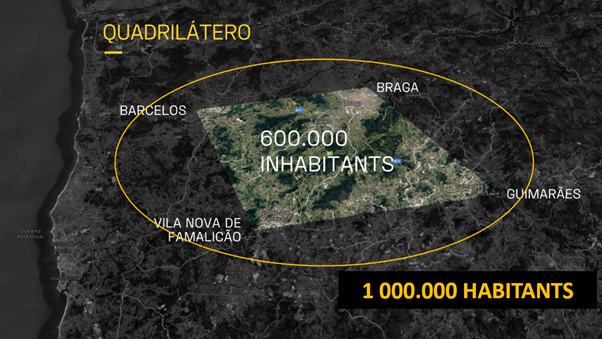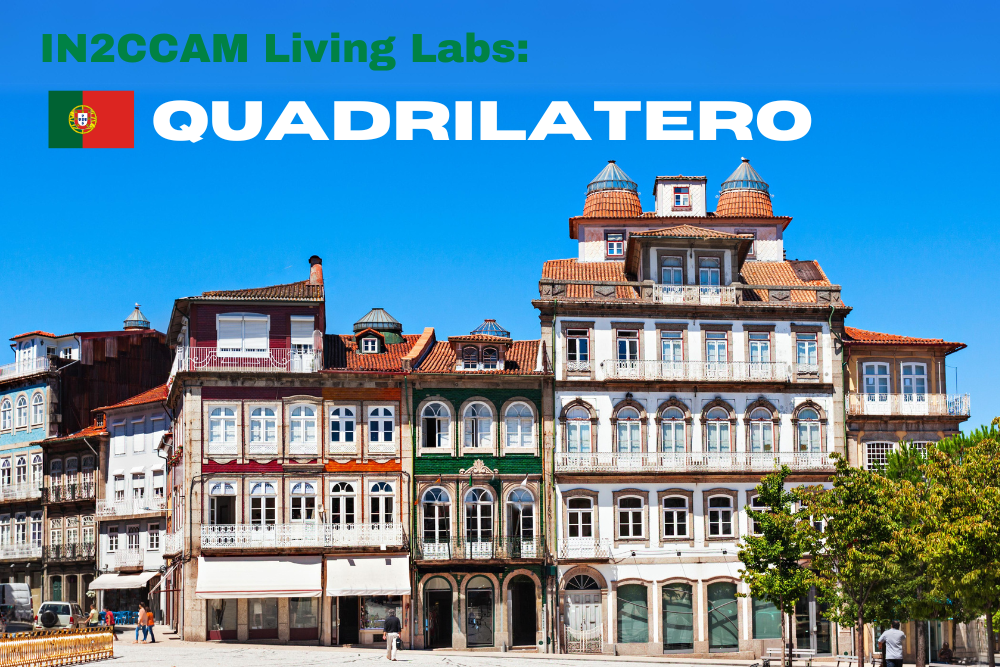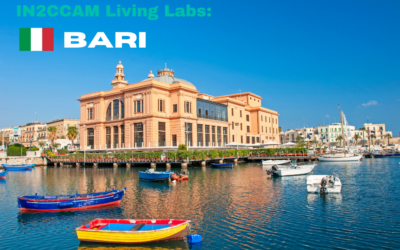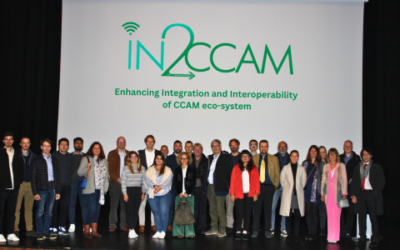As we kick off the new year, we’re excited to resume our ‘IN2CCAM Uncovered’ series. In this edition, our focus turns to Quadrilaterio LL, situated in Portugal, one of the two Follower Living Labs, alongside Bari (Italy). These Follower LLs play a pivotal role in testing and digitally validating CCAM services, employing simulations and emulation solutions. Discover how the Quadrilatero association and Ubiwhere are collaborating to assess the societal, environmental, and safety implications of CCAM integration in four cities in Portugal.
The Quadrilatero Living Lab encompasses four cities in the north of Portugal: Braga, Barcelos, Famalicão, and Guimarães. The primary objective of these municipalities is to assess the potential of CCAM to enhance interurban transport through seamless service integration into traffic management. Guimarães, in particular, stands out as a transformative city committed to the sustainable transition of the region. Its ambitious goal is to become the first Carbon Neutral City in Portugal, achieved through the development of tools and the creation of an optimal environment. Recent initiatives include the approval of a Climate Action Plan and the establishment of tools to measure its impact, ensuring effective efforts to combat climate change and supporting informed decisions for future actions. The city is part of the 100 NetZeroCities in Europe initiative, dedicated to significantly reducing greenhouse gas emissions for climate neutrality. This commitment has propelled the city to the top 3 finalist position for the European Green Capital 2025, showcasing its dedication to environmental sustainability and resilience.
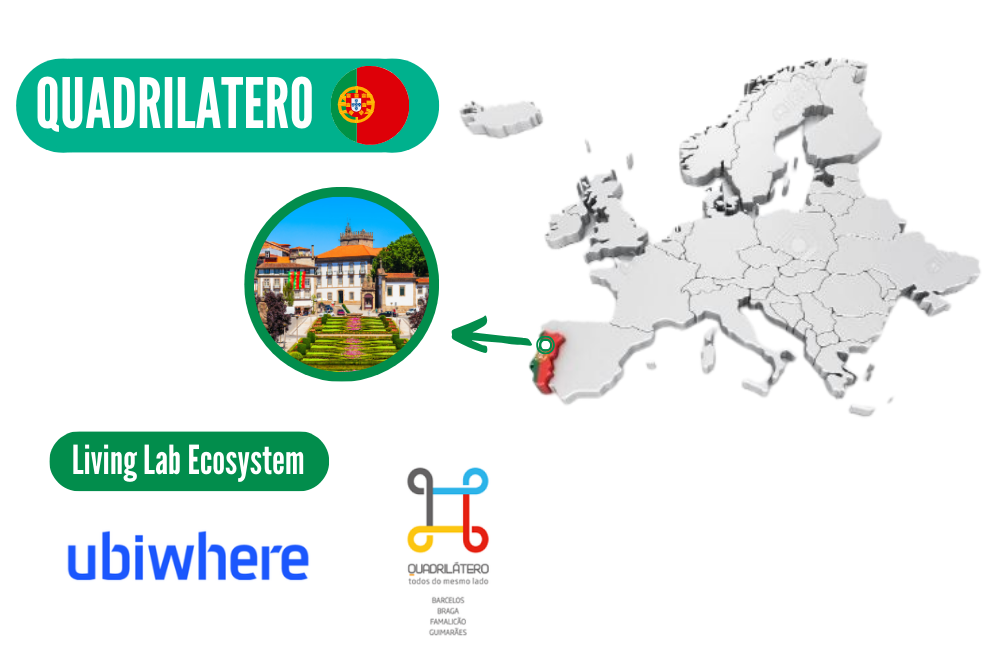
Two partners are involved in this Living Lab. Ubiwhere is a Portuguese software and R&D company that develops innovative solutions for smart cities, telecommunications, and the Internet of the Future, to improve lives through technology. Ubiwhere has installed cutting-edge Connected Street Furniture in Guimarães, featuring modular lampposts equipped with advanced technology. This innovation not only enables municipalities to future-proof their smart cities but also provides Mobile Network Operators with a cost-effective solution for deploying 5G. The Connected Urban Furniture comes with a comprehensive management platform, empowering tenants and owners/landlords to handle lease and asset management tasks seamlessly. Furthermore, Ubiwhere is undertaking the largest smart parking project in Portugal, implementing a real-time data collection system across more than 900 on-street and off-street parking spaces in the Municipality of Guimarães. Additionally, Guimarães has embraced Ubiwhere’s urban data platform, integrating various information sets, including traffic flow, incidents, weather, and buildings. It serves as a case study for experimenting with new mobility scenarios and AI-driven simulations, ultimately enhancing efficiency and the overall quality of life in the city.
Quadrilatero, on the other hand, is a non-profit association committed to maintaining the collaborative network established by the cities of Barcelos, Braga, Famalicão, and Guimarães. Its vision is to serve as the hub for territorial competitiveness in the northwest peninsular, recognized as a leading centre for urban and business innovation. This designation results from cooperation among businesses, the scientific-technological community, local administrations, and end users, all integrated into international networks. The mission of the Quadrilátero association is to stimulate the innovative ecosystem and promote the “Quadrilátero” brand, securing funds for cooperation projects to advance innovation, creativity and applied research for businesses and cities.
For this Living Lab, Ubiwhere and Quadrilatero aim to assess the societal, environmental, and safety implications of CCAM integration, analysing shuttles’ data, historical travel itineraries data, road infrastructure data, and public transportation usage and schedules data. The use case will benefit from Ubiwhere’s expertise in data aggregation for analysis and simulation, as well as existing datasets available in Guimarães. To assess the environmental impact of CCAM vehicles, the team will use the ‘tank-to-wheel’ life-cycle assessment method, only considering emissions from the vehicles’ operations. The team will use the CORINAIR system, approved by the European Environment Agency (EEA) and follows the IPCC guidelines.
With this, the Living Labs seeks to provide a comprehensive approach to assess the impact of CCAM vehicles on urban areas, including optimisation of urban space utilisation, reduction of congestion, improvement of air quality and noise pollution, and provision of data-driven tools for urban planning and traffic management.
“By leveraging the power of connected mobility and real-time information systems, we can increase safety and traffic efficiency. We will optimise urban space, reduce congestion, and improve air and noise pollution. This approach will also provide municipalities with valuable digital tools for urban planning and traffic management, empowering decision-makers to create a more sustainable and livable city for all”
Nuno Alexandre Cunha (Quadrilatero Association).
